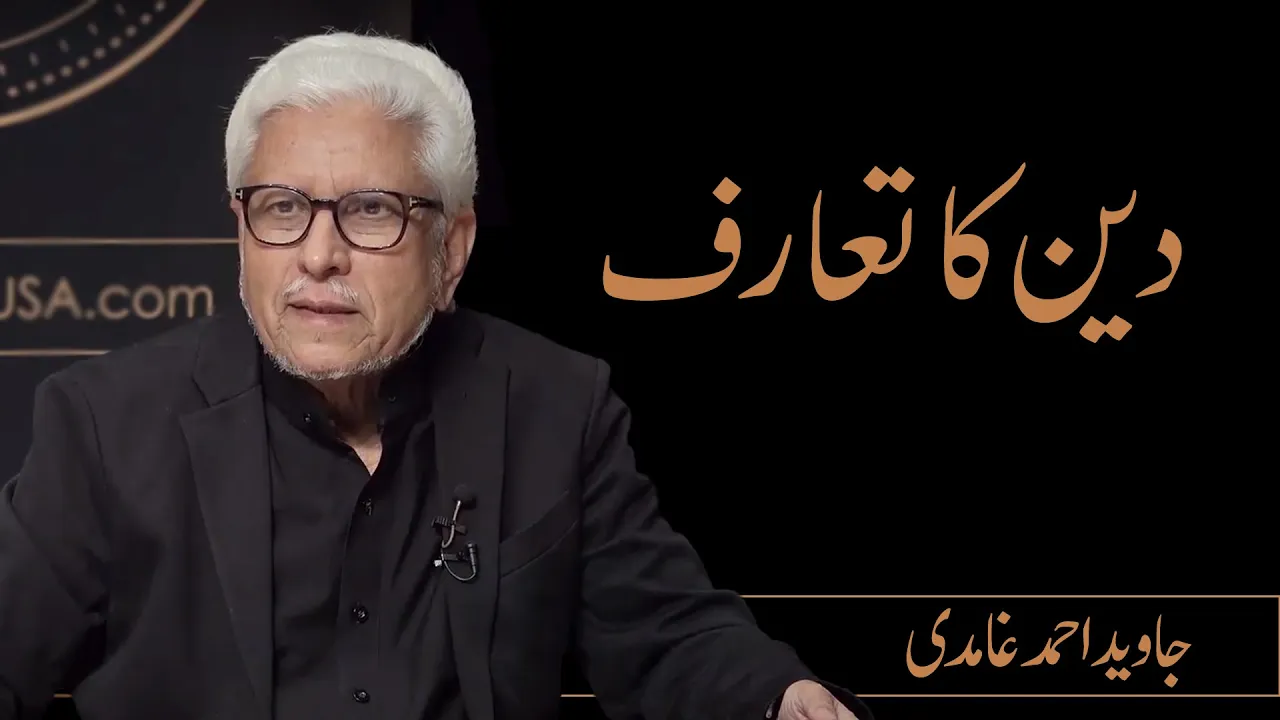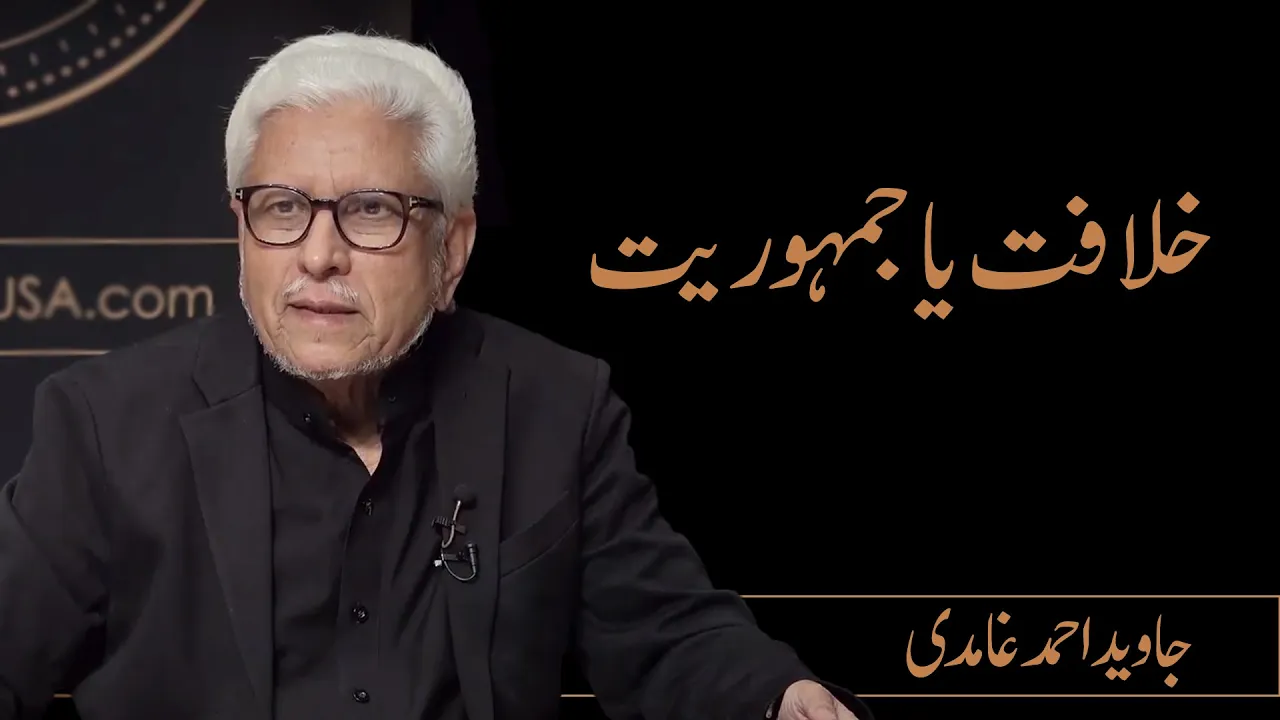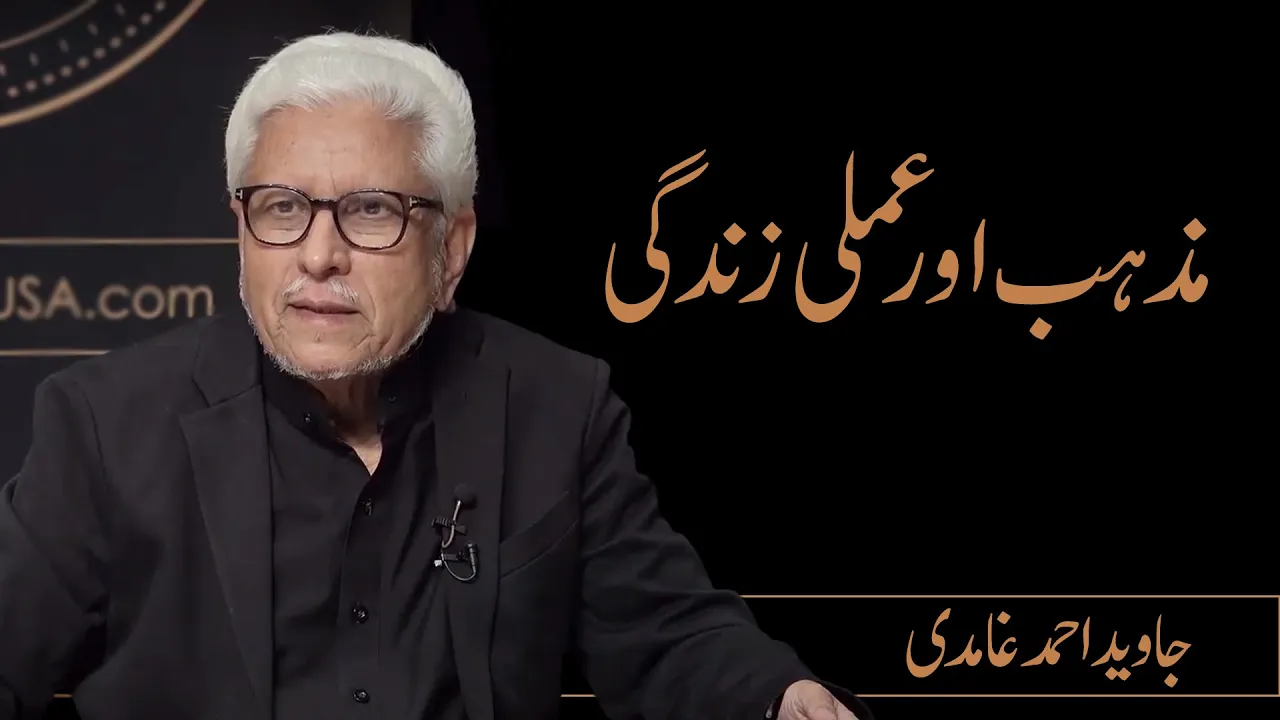Question
Thirdly, I commit a sin (I go near zina, although I do not actually do zina but I go near it). My problem is that I also offer prayers and also read Qur’an with understanding. Some times I think that if I can not leave the bad I should leave the prayers as well. Because I think that may be I am a hypocrite who is just trying to show off (although my intention is never to show off). What should I do with this thought of leaving good? I have tried but haven’t been able to leave the sin; I feel I am in the middle of good and bad forces. Secondly, when some one is bad in one aspect of his life, can he advise well to others on any other aspect of life if not the one in which he is bad. People say that first one should apply well on himself then only he should advise others. Kindly put some light on this.
Answer
People who argue that Hadith can give an independent directive of prohibition will be told how musical gatherings were inflicted with liquor consumption and lewd songs — which is evident from other narratives as well as from history. Similarly, they will be told that how would they explain narratives in which the Prophet (sws) encouraged music and singing. Both are detailed out below.
حُسَيْنَ بن عَلِيٍّ عليهم السَّلَام أخبره أَنَّ عَلِيًّا قال كانت لي شَارِفٌ من نَصِيبِي من الْمَغْنَمِ يوم بَدْرٍ وكان النبي صلى الله عليه وسلم أَعْطَانِي مِمَّا أَفَاءَ الله عليه من الْخُمُسِ يَوْمَئِذٍ فلما أَرَدْتُ أَنْ أَبْتَنِيَ بِفَاطِمَةَ عليها السَّلَام بِنْتِ النبي صلى الله عليه وسلم وَاعَدْتُ رَجُلًا صَوَّاغًا في بَنِي قَيْنُقَاعَ أَنْ يَرْتَحِلَ مَعِي فَنَأْتِيَ بِإِذْخِرٍ فَأَرَدْتُ أَنْ أَبِيعَهُ من الصَّوَّاغِينَ فَنَسْتَعِينَ بِهِ في وَلِيمَةِ عُرْسِي فَبَيْنَا أنا أَجْمَعُ لِشَارِفَيَّ من الْأَقْتَابِ وَالْغَرَائِرِ وَالْحِبَالِ وَشَارِفَايَ مُنَاخَانِ إلى جَنْبِ حُجْرَةِ رَجُلٍ من الْأَنْصَارِ حتى جَمَعْتُ ما جَمَعْتُ فإذا أنا بِشَارِفَيَّ قد أُجِبَّتْ أسنمتهما وَبُقِرَتْ خَوَاصِرُهُمَا وَأُخِذَ من أَكْبَادِهِمَا فلم أَمْلِكْ عَيْنَيَّ حين رأيت الْمَنْظَرَ قلت من فَعَلَ هذا قالوا فَعَلَهُ حَمْزَةُ بن عبد الْمُطَّلِبِ وهو في الْبَيْتِ في شَرْبٍ من الْأَنْصَارِ عِنْدَهُ قَيْنَةٌ وَأَصْحَابُهُ فقالت في غِنَائِهَا ألا يا حَمْزُ لِلشُّرُفِ النِّوَاءِ فَوَثَبَ حَمْزَةُ إلى السَّيْفِ فَأَجَبَّ أَسْنِمَتَهُمَا وَبَقَرَ خَوَاصِرَهُمَا وَأَخَذَ من أَكْبَادِهِمَا
Husayn ibn ‘Alī reported that ‘Alī said: “From among the spoils of Badr, a she-camel was given to me as my share. Besides her, the Prophet (sws) also gave me another she-camel from the gains of khums. When my marriage was decided with Fatimah the daughter of the Prophet (sws), I made a deal with a goldsmith belonging to the tribe of Qaynuqa‘ that he would go with me to bring a special type of grass by loading it on the camels. By selling this grass to the goldsmiths I wanted to throw my walīmah. For this, I arranged for ropes and packsaddle for my she-camels. These camels were sitting in the house of a person from the Ansār tribe. After gathering these things I went to the camels, I saw that someone had chopped off their humps and taken out their livers by cutting open their stomachs. I could not restrain my tears at this situation. I asked people: ‘Who is responsible for this?’ They replied: ‘Hamzah ibn ‘Abd al-Muttalib; he is drinking liquor in this house along with many people of the Ansār. A songstress is also present there along with his friends. What happened was that when she sang the following words: “Hamzah! Get up and slay these robust she-camels,” he immediately pounced on them with a sword and chopped off their humps, and took out their livers by slicing open their stomachs.” (Bukhari, No. 3781).
عن عُرْوَةَ عن عَائِشَةَ قالت دخل عَلَيَّ رسول اللَّهِ صلى الله عليه وسلم وَعِنْدِي جَارِيَتَانِ تُغَنِّيَانِ بِغِنَاءِ بُعَاثَ فَاضْطَجَعَ على الْفِرَاشِ وَحَوَّلَ وَجْهَهُ وَدَخَلَ أبو بَكْرٍ فَانْتَهَرَنِي وقال مِزْمَارَةُ الشَّيْطَانِ عِنْدَ النبي صلى الله عليه وسلم فَأَقْبَلَ عليه رسول اللَّهِ عليه السَّلَام فقال دَعْهُمَا فلما غَفَلَ غَمَزْتُهُمَا فَخَرَجَتَا وكان يوم عِيدٍ
‘Urwah reports that ‘Ā’ishah said: “The Prophet (sws) once came over to me. On this occasion, two slave-girls were singing the songs related to the battle of Bu‘āth. He lay down on a bed, and turned himself to the other side. In the meantime, Abū Bakr came along and scolded me for what was going on and said: ‘Why these devilish musical instruments in the presence of the Prophet (sws)?’ The Prophet turned and said: ‘Leave them alone and let them sing. When Abū Bakr got involved in some work, I gestured towards these songstresses to go. So they went away. This was the day of ‘īd. (Bukhari, No: 907)
عن الرُّبَيِّعِ بِنْتِ مُعَوِّذٍ قالت دخل عَلَيَّ النبي صلى الله عليه وسلم غَدَاةَ بُنِيَ عَلَيَّ فَجَلَسَ على فِرَاشِي كَمَجْلِسِكَ مِنِّي وَجُوَيْرِيَاتٌ يَضْرِبْنَ بِالدُّفِّ يَنْدُبْنَ من قُتِلَ من آبَائِهِنَّ يوم بَدْرٍ حتى قالت جَارِيَةٌ وَفِينَا نَبِيٌّ يَعْلَمُ ما في غَدٍ فقال النبي صلى الله عليه وسلم لَا تَقُولِي هَكَذَا وَقُولِي ما كُنْتِ تَقُولِينَ
Al-Rabī‘ bint Ma‘ūdh said: “When I departed as a bride to my husband’s house, the Prophet (sws) came over to me and sat on my bedding the way you are sitting on it. At this time, our slave-girls were singing an elegy to the martyrs of Badr on a small tambourine. On this occasion, one of the slave-girls while singing said the words: ‘Present amongst us is the Prophet who knows what is going to happen in the future.’ At this the Prophet said: ‘Do not say this but sing what you were singing before.’” Bukhari: 3779
It is evident from some narratives that the Prophet (sws) had kept a person called Anjashah who was a camel-driver who would sing marching tunes to boost the speed of the camels. During one journey, when these camels were impelled to trudge faster by his chants, the Prophet (sws) lovingly chided him that he should think of the women riding the camels lest they should fall down because of their fast speed:
حدثنا إِسْحَاقُ أخبرنا حَبَّانُ حدثنا هَمَّامٌ حدثنا قَتَادَةُ حدثنا أَنَسُ بن مَالِكٍ قال كان لِلنَّبِيِّ صلى الله عليه وسلم حَادٍ يُقَالُ له أَنْجَشَةُ وكان حَسَنَ الصَّوْتِ فقال له النبي صلى الله عليه وسلم رُوَيْدَكَ يا أَنْجَشَةُ لَا تَكْسِرْ الْقَوَارِيرَ قال قَتَادَةُ يَعْنِي ضَعَفَةَ النِّسَاءِAnas reported that the
Prophet had a camel-driver called Anjashah and he had a very melodious voice. In one journey, the Prophet (sws) said to him: “Sing slowly O Anjashah lest you might break these delicate crystals.” Qatādah clarified that this refers to delicate women. (Bukhari, No: 5857)
In the light of this analysis, the prohibition of music can be easily understood: only music and songs which possessed an element of immorality in them had been forbidden.
Answered by: Dr. Shehzad Saleem
Date: 2015-02-20









